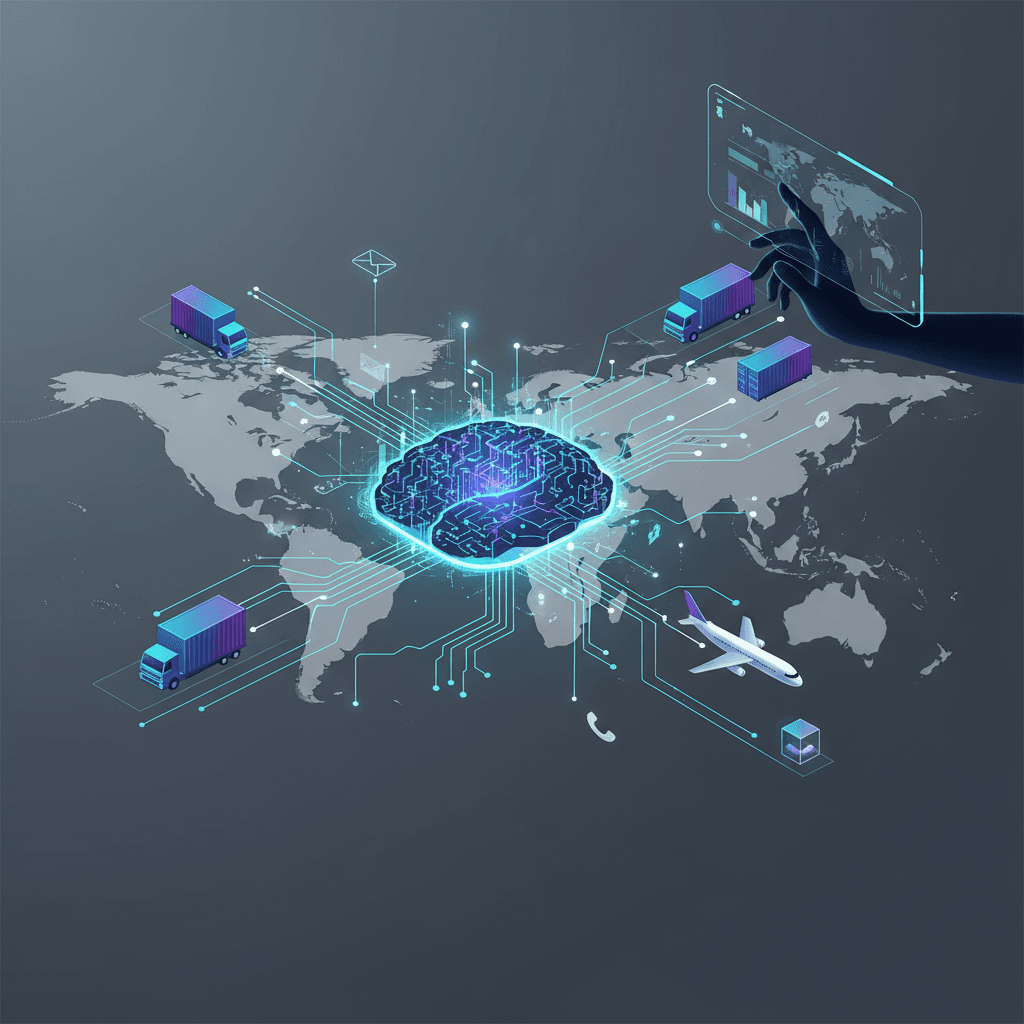DHL Scales AI Agents, Reshaping Global Logistics Operations
Moving beyond pilots, DHL deploys autonomous AI agents to automate global logistics communications, augmenting human teams for higher-value work.
November 26, 2025

In a significant move to reshape the landscape of global logistics, DHL is rolling out advanced artificial intelligence agents to automate key aspects of its worldwide operations.[1][2] Through an expanded partnership with the AI startup HappyRobot, DHL Supply Chain is deploying autonomous agents designed to handle complex communication tasks, aiming to boost efficiency, enhance customer service, and improve the work experience for its employees.[3][4] This initiative signals a major shift in the logistics industry, moving beyond pilot programs to the large-scale implementation of AI in core operational workflows. The deployment is already managing hundreds of thousands of emails and millions of voice minutes annually, targeting high-volume, repetitive tasks that have traditionally consumed significant human resources.[1][5][6][7]
The collaboration between the logistics giant and HappyRobot is the culmination of an 18-month period of systematically identifying and validating use cases for generative and agent-based AI.[1][8][2][4] DHL is integrating these AI agents into several critical areas of its operations, including appointment scheduling, follow-up calls with drivers, and high-priority warehouse coordination.[1][9][4] HappyRobot's technology provides fully autonomous AI agents that can interact across various communication channels, including phone calls, emails, WhatsApp, and SMS, and are designed to complete entire workflows from end to end.[10] For instance, an AI agent can independently schedule a delivery appointment with a driver, send a confirmation, handle follow-ups if a time slot is missed, and intelligently route any exceptions to human personnel for resolution.[10] This level of automation is designed to bring greater speed, consistency, and scalability to DHL's communications, directly impacting the fluidity of its vast supply chain network.[5][4]
The primary driver behind this technological leap is the pursuit of greater operational efficiency and a more resilient supply chain.[11][12] By automating routine and time-consuming communication, DHL aims to significantly reduce manual workloads and accelerate response times.[1][5][9] This allows the company to deliver faster and more consistent service to its customers.[8][5] The impact is already measurable, with initial deployments demonstrating a clear reduction in manual effort and increased responsiveness in communication-heavy tasks.[5][2][9] DHL's strategy is not simply about replacing human tasks but augmenting its workforce. Company executives have emphasized that by handing over repetitive administrative duties to AI, employees are freed up to focus on higher-value activities such as problem-solving, managing exceptions, and more strategic work.[10][8][5] This approach is particularly crucial in the face of tight labor markets, where attracting and retaining qualified talent is a significant challenge.[1][5] By making operational roles more engaging and less centered on drudgery, DHL hopes to create a more attractive and sustainable work environment.[1][5][4]
The implications of DHL's large-scale AI adoption extend far beyond its own operations, signaling a broader transformation within the logistics and supply chain industry.[11][13] The move validates the growing maturity of AI technology, particularly in its ability to handle nuanced, real-world interactions that are central to logistics coordination.[10] HappyRobot's CEO, Pablo Palafox, envisions a future where "AI workers" actively manage and coordinate global supply chain operations, acting as a new operational layer that enhances speed and visibility.[8][2] This partnership serves as a prominent case study for how enterprises can methodically move from AI experimentation to full-scale production, focusing on evidence-based results and measurable outcomes.[10] As AI continues to prove its value in optimizing routes, forecasting demand, and managing inventory, its role is becoming indispensable for companies seeking a competitive edge in a rapidly evolving global market.[11][13]
In conclusion, DHL's strategic deployment of HappyRobot's AI agents represents a pivotal moment in the integration of artificial intelligence into the logistics sector. By automating a significant volume of operational communications, DHL is not only streamlining its own processes but also setting a new industry standard. This initiative underscores a future where human and AI workforces collaborate to create a more efficient, responsive, and resilient global supply chain. The focus on augmenting employee roles rather than outright replacement suggests a strategic approach to navigating the future of work in an increasingly automated world. As the technology continues to develop, the logistics industry is poised for further AI-driven innovations that will redefine operational paradigms and efficiency for years to come.